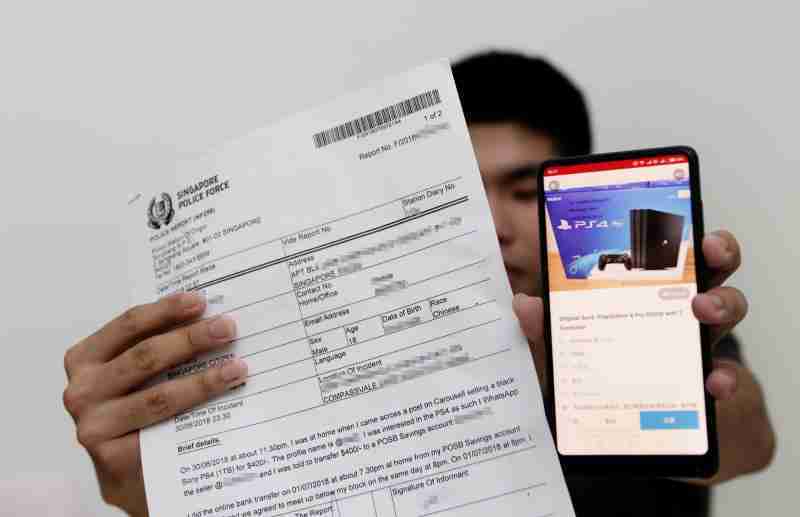KEEP IN TOUCH
Subscribe to our mailing list to get free tips on Data Protection and Cybersecurity updates weekly!






SCAMS IN SINGAPORE – Scammers impersonating technical support staff so they can steal bank account details have come out in force now that many people are working from home.
The telephone fraudsters will claim there are Internet issues, for example, and ask the victim to install applications that give a person remote access to their computers.
That in turn provides the scammers with the opportunity to access bank accounts and other personal information.
At least 125 people lost about $4.5 million to such frauds in the first three months of the year, the police said on Friday (April 10).
This kind of “technical support” scams in singapore surfaced last year, with around 20 cases reported between August and September.
Recently, some scammers have also taken advantage of the Covid-19 situation to deceive victims who are working from home into believing that their Wi-Fi networks had been compromised,” said police.
Scammers typically impersonate staff from telecoms providers such as Singtel and StarHub and persuade victims to install software applications like Teamviewer or AnyDesk, claiming that this would help them resolve Internet issues.
Some also claim to be from the “Cyber Crime Department of Singapore” or the “Cyber Police of Singapore” – agencies that do not exist – and direct them to install the applications so to help with investigations.
Once victims install the applications, scammers then ask them to log into their online bank accounts. They then transfer money out of the accounts without the victim’s knowledge, said police.
There have also been cases where scammers trick their victims into carrying out the transactions themselves.
A victim who wanted to be known only as Mr Tan, 42, was contacted by “Singtel staff” who told him hackers were after his personal details. He had to make a “dummy transaction” so Singtel could catch the hackers, he was told.
Several “managerial staff” from Singtel who took turns speaking to him on the phone directed him to download the “TeamViewer” application, said Mr Tan, who runs a personal training studio.
He was also told to log into his bank account and transfer $75,000 to another account in Malaysia. The money would be returned within an hour, they claimed.
“At this point in time, I was panicking because I did have my bank account hacked into before, so I said okay,” said Mr Tan, who did as he was told.
Once he made the transfer and hung up, he realised he had been scammed and immediately called his bank and made a police report.
Thankfully, the bank managed to stop the transaction before it went through, he said.
“Ever since that incident, I don’t pick up calls with no number on it… and even if I did I won’t do anything that concerns my personal details,” Mr Tan added.Related Story
The police noted: “No telecommunication service provider or government agency will request for your personal details or access to your bank account over the phone.”
They added that the public should not follow instructions to install applications, type commands into the computer or log in to online banking accounts.
All incoming international calls will be prefixed with a plus sign from April 15, and the public should be wary when receiving unexpected calls from overseas.
Privacy Ninja provides 1 to 1 training on PDPA or Cybersecurity Awareness Training. Do contact us to train your Staff or yourself.
https://www.google.com/podcasts?feed=aHR0cHM6Ly9hbmNob3IuZm0vcy8yMWQyMjQ2MC9wb2RjYXN0L3Jzcw==

Established in 2018, Privacy Ninja is a Singapore-based IT security company specialising in data protection and cybersecurity solutions for businesses. We offer services like vulnerability assessments, penetration testing, and outsourced Data Protection Officer support, helping organisations comply with regulations and safeguard their data.
Singapore
7 Temasek Boulevard,
#12-07, Suntec Tower One,
Singapore 038987
Latest resources sent to your inbox weekly
© 2025 Privacy Ninja. All rights reserved
Subscribe to our mailing list to get free tips on Data Protection and Cybersecurity updates weekly!

Subscribe to our mailing list to get free tips on Data Protection and Cybersecurity updates weekly!
